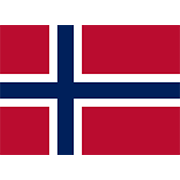Fiscal subject related
The Norwegian Tax Administration has announced the release of SAF-T Financial Version 1.3, which will become mandatory for submitting accounting data starting January 1, 2025. This update brings several significant changes aimed at improving the efficiency and accuracy of financial reporting.
From January 2025, all accounting data submissions must use SAF-T Version 1.3. This version is not backward compatible, so businesses need to ensure they are prepared by the end of their first accounting period in 2025, likely aligning with the first VAT period. For periods before 2025, older versions (1.2, 1.1, 1.0) can still be used alongside Version 1.3.
What are some of the key changes?
- New Structure for Balance Accounts: The update introduces a revised structure for balance accounts related to customers and suppliers.
- Revised VAT and Transaction Details: There will be changes in how VAT and transaction details are presented.
- Mandatory Fields: Several fields that were previously optional are now mandatory.
- New Fields and Data Changes: Three new fields have been introduced, along with changes to data types and character limits.
In Version 1.3, companies must link their accounts to the new Business Specification, which aligns with the Tax Return chart of accounts. This is a departure from previous versions where different mappings could be chosen.
These updates are designed to simplify system transfers, enhance data analysis, and create a more user-friendly standard for processing accounting data. The goal is to streamline financial reporting and ensure consistency across submissions.
Other news from Norway
TLv6 Implementation Marks Significant Shift in EU’s Trust List Format
A new EU Trust List format, TLv6, will officially replace TLv5 in May 2025 as part of the updated eIDAS Regulation (EU 2024/1183). It introduces key technical changes like a new URI field, updated signature format, and optional phone number support. Organizations must update their systems to avoid signature validation failures and service disruptions, as TLv5 will no longer be valid once TLv6 take... Read more



Goods exported from the Norwegian VAT Area are exempt from VAT.
 Norway
Author: Nikola Novković
Norway
Author: Nikola Novković
Norway has introduced new VAT exemption provisions for private firms exporting goods, requiring stricter documentation and digital signatures for compliance. The updated regulation mandates detailed transaction records, verified buyer identification, and proper export documentation, ensuring transparency and better VAT refund processing. To ensure better compliance with legal requirements and im... Read more



Navigating SAF-T: Differences Between Norway's and Denmark's Tax Reporting
 Norway
Author: Ivana Picajkić
Norway
Author: Ivana Picajkić
Norway and Denmark both use the Standard Audit File for Tax (SAF-T) but with different implementation approaches and requirements. Norway's SAF-T, mandatory since 2020, is submitted only upon request, while Denmark's SAF-T is part of ongoing digital bookkeeping obligations with set deadlines. Read more



Norway: Everything You Need to Know About the VAT System
 Norway
Author: Ivana Picajkić
Norway
Author: Ivana Picajkić
Norway requires businesses with annual revenue exceeding 50,000 NOK to register for VAT, with rates ranging from 25% for most goods to 0% for select services like newspapers and international transport. VAT returns are typically submitted bi-monthly, with strict invoicing requirements and potential penalties for non-compliance. Read more



Norway Launches Evaluation for Mandatory E-Invoicing and Digital Bookkeeping
 Norway
Author: Ivana Picajkić
Norway
Author: Ivana Picajkić
The Norwegian Ministry of Finance has launched an evaluation on implementing mandatory e-invoicing and digital bookkeeping, with initial proposals expected by June 2025. This initiative aims to enhance efficiency, align with EU standards, and potentially save businesses over NOK 5 billion annually by adopting a framework similar to Denmark’s system. The Norwegian Ministry of Finance has initiated... Read more



Understanding the Importance and Benefits of E-Invoicing in Norway
 Norway
Author: Ivana Picajkić
Norway
Author: Ivana Picajkić
E-invoicing is a key element of Norway’s digital transformation, enhancing efficiency, transparency, and compliance across B2B, B2G, and B2C transactions. It is mandatory for all suppliers to public sector entities, requiring adherence to Norwegian standards and use of formats like EHF and Peppol BIS Billing 3.0. Read more



Reminder: Norway Announced New VAT Rates for 2025
 Norway
Author: Ivana Picajkić
Norway
Author: Ivana Picajkić
Norway has announced updated VAT rates effective January 1, 2025, including a standard rate of 25% and reduced rates of 15%, 12%, and 11.11% for specific goods and services. These changes aim to align tax policy with economic objectives and sector-specific support. The Norwegian Official Gazette announced the VAT rates for 2025, which will take effect on January 1, 2025. The standard VAT rate is... Read more


